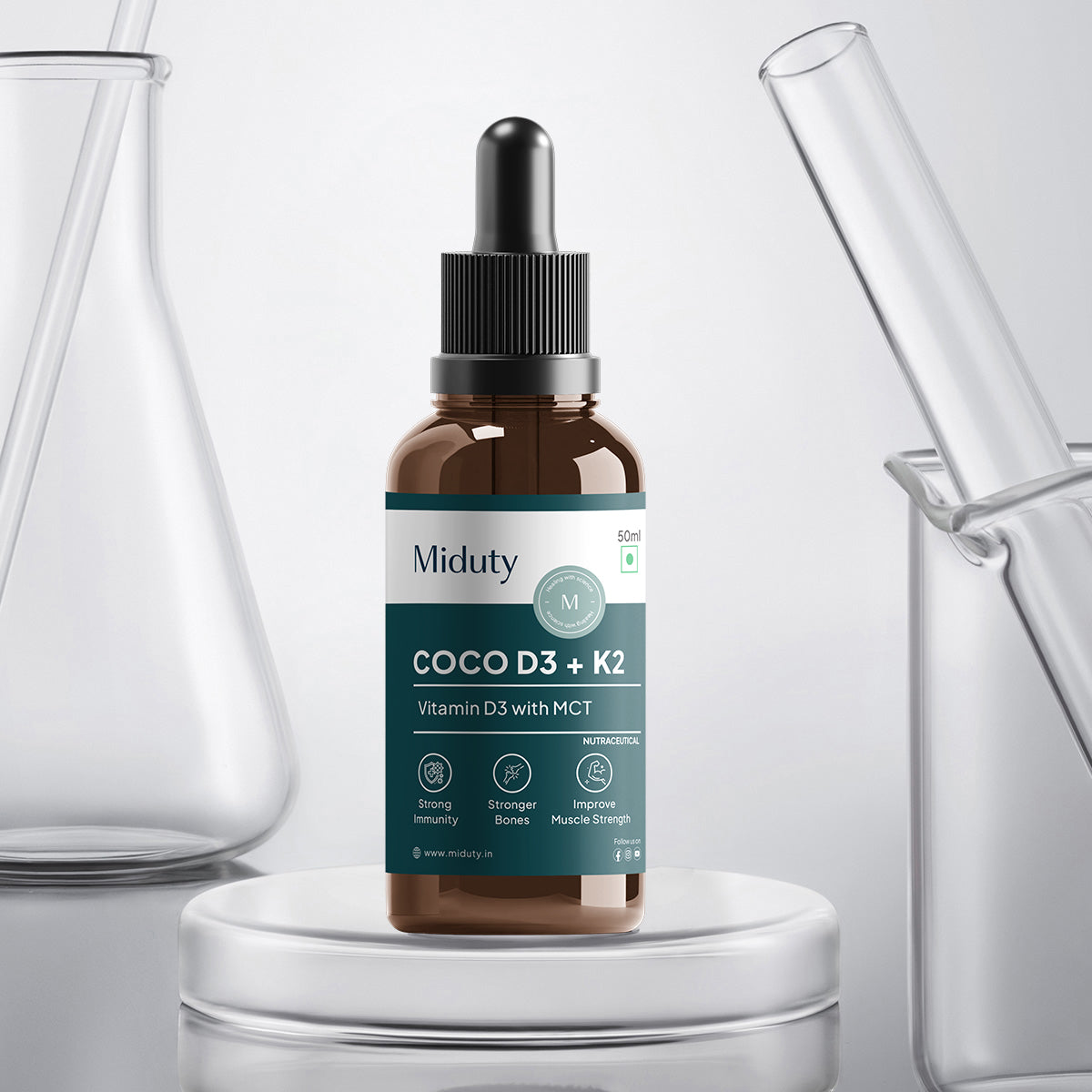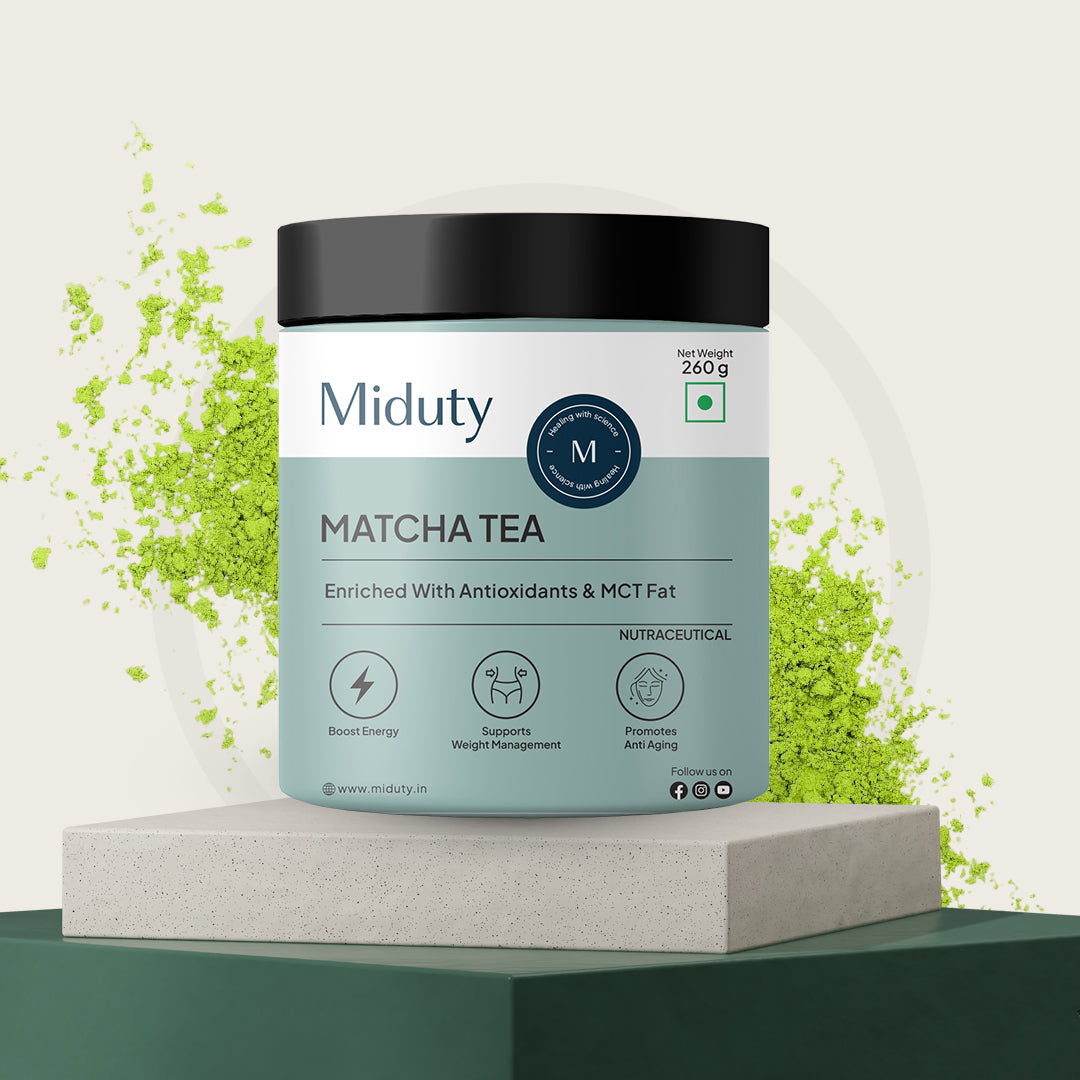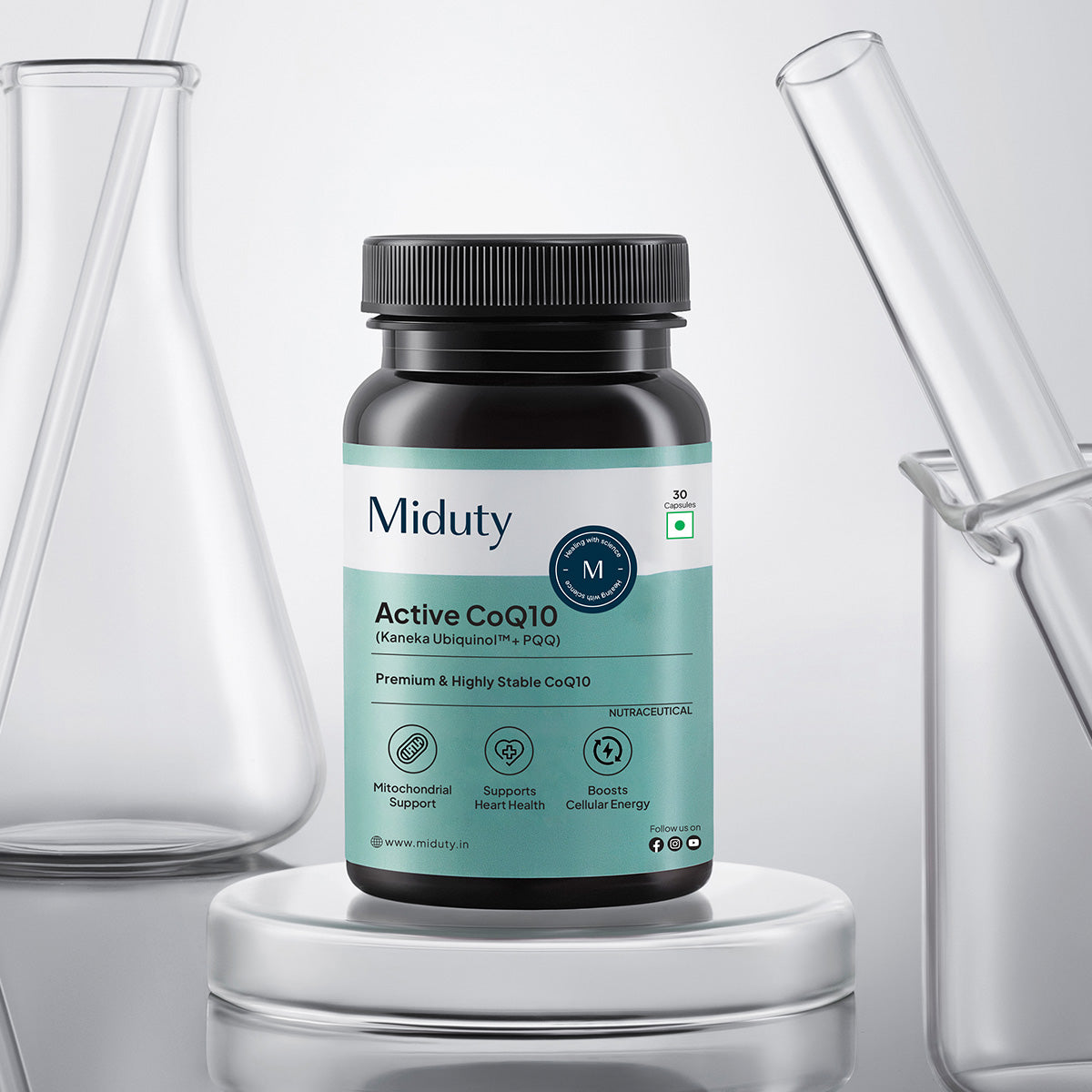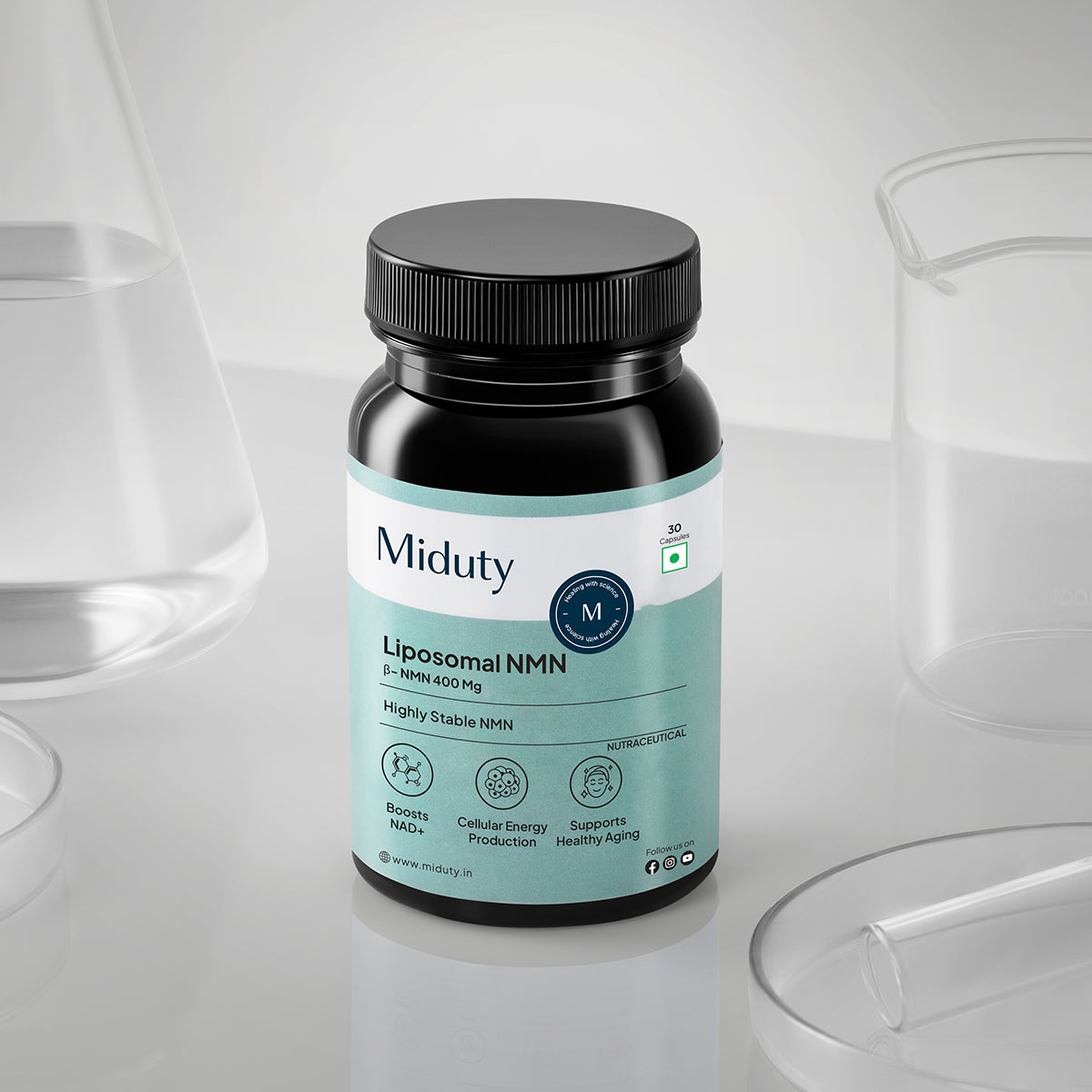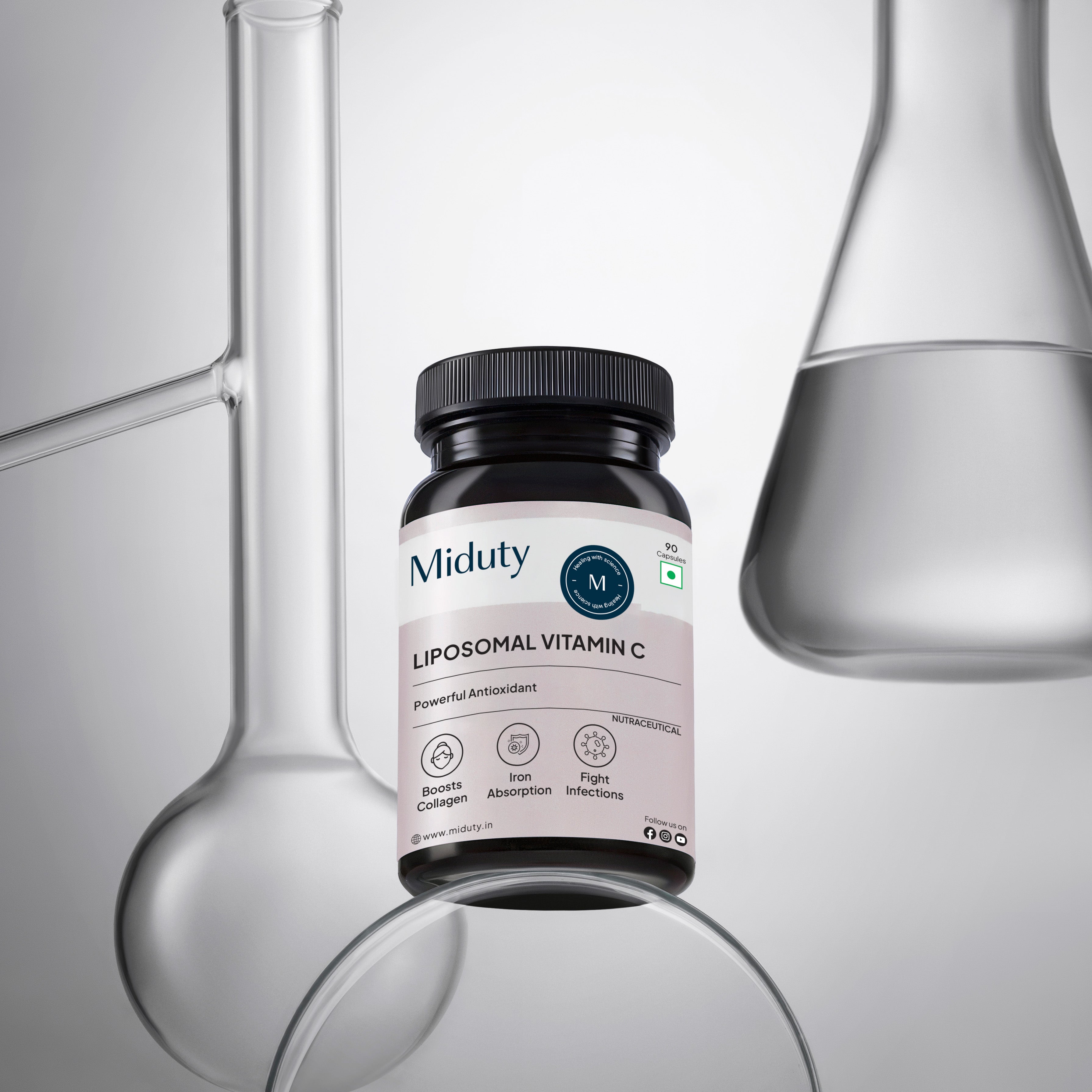
Cold Pressed Oils 101: Benefits, Types, Uses, and Why Are They Better
In today's world, where we're all striving to eat cleaner and live healthier, the little choices we make can add up to a big difference. One such choice is the kind of oil we use every day, whether it's for cooking, skincare, or even hair care. Enter cold-pressed oils: the nutrient-packed, all-natural alternatives to refined oils that our grandparents swore by and modern wellness enthusiasts can't stop talking about.
Unlike regular oils that are processed under high heat and lose much of their natural goodness, cold-pressed oils are extracted gently, keeping all the essential nutrients, flavors, and health benefits intact. From drizzling on your salad to nourishing your skin, they're versatile, wholesome, and a step toward mindful living.
In this guide, we'll explore everything you need to know about cold-pressed oils, their benefits, different types, how to use them, and most importantly, why they truly stand out from the rest.
Key Takeaways
1. Cold Pressed Oils Retain Natural Nutrients: Cold pressed oils are extracted without heat or chemicals, preserving essential nutrients like vitamin E, omega-3 fatty acids, and antioxidants—making them far healthier than refined oils.
2. They Offer Multiple Health Benefits: From supporting heart health and digestive wellness to improving skin and hair, cold pressed oils act as natural health boosters for both internal and external use.
3. Ideal for Cooking and Skincare: Whether you're stir-frying vegetables or moisturizing your skin, cold pressed oils serve as multi-purpose solutions that fit seamlessly into everyday wellness routines.
4. They're Environmentally and Economically Conscious: Cold pressed oil production uses less energy, creates less waste, and often supports local farmers and sustainable agriculture, making it a planet-friendly choice.
5. Not All Cold Pressed Oils Are Equal: Always read labels for terms like "100% cold pressed," "unrefined," and "no additives", and choose dark glass packaging for better quality and shelf life.
What is Cold Pressed Oil?
Cold pressed oil is the purest form of oil you can get from seeds, nuts, or fruits. Unlike refined oils, it's extracted using a traditional mechanical process that doesn't involve heat or chemicals. This slow pressing technique preserves the oil's natural flavor, aroma, and most importantly, its nutritional value. Imagine the difference between eating a fresh orange and a canned one. That's the kind of quality gap you're looking at.
What makes cold pressed oil stand out is its simplicity and wholesomeness. The seeds are crushed in a wooden or stainless-steel press, and the oil that trickles out is collected and filtered naturally. There's no bleaching, deodorizing, or industrial refining here. The oil retains its color, taste, and all the antioxidants, vitamins, and healthy fats your body loves.
In today's world of mass production and chemical treatments, cold pressed oil is a refreshing return to how our ancestors used to cook and care for themselves. Whether you're adding it to your salad, drizzling it on toast, or using it for skin care, it's one of the healthiest, most natural ingredients you can use.
Brief History and Traditional Use of Cold Pressed Oils
The concept of cold pressing isn't new. In fact, it dates back thousands of years. Civilizations in Egypt, India, and Greece used wooden or stone presses to extract oils for cooking, medicine, and beauty rituals. Ayurveda, India's ancient system of medicine, praises cold pressed oils like sesame and coconut for their healing properties, both internally and externally.
In Indian households, especially in the South, cold pressed oils (called "chekku ennai" in Tamil) were once a kitchen staple. Grandmothers would walk to local mills carrying jars and return with fresh oil that smelled like roasted seeds and sunshine. It wasn't just oil; it was liquid health.
Unfortunately, with the rise of industrialization, refined oils took over due to their longer shelf life and lower cost. But slowly, the world is waking up again to the magic of traditional oils. Wellness experts, chefs, and even dermatologists are now recommending cold pressed oils for everything from heart health to glowing skin.
In essence, cold pressed oils are a bridge between ancient wisdom and modern wellness—a tradition reborn in our fast-paced world.
Differences Between Cold Pressed and Refined Oils
The difference between cold pressed and refined oils is night and day both in how they're made and what they offer. Refined oils go through a rigorous chemical process. First, the seeds are heated to high temperatures to maximize oil output. Then, they're treated with solvents like hexane to extract every last drop. After that, the oil is bleached and deodorized to make it look and smell "clean."
Cold pressed oils, on the other hand, are never exposed to heat or chemicals. The result? Refined oils are clear, odorless, and longer-lasting, but stripped of most nutrients. Cold pressed oils are cloudy, aromatic, and packed with health-boosting compounds.
Here's a quick comparison:
|
Feature |
Cold Pressed Oil |
Refined Oil |
|
Extraction Method |
Mechanical, no heat |
Heat and chemical solvents |
|
Nutritional Value |
High |
Low |
|
Color & Aroma |
Natural, strong |
Neutral |
|
Shelf Life |
Shorter |
Longer |
|
Additives |
None |
Yes (solvents, preservatives) |
|
Health Benefits |
Preserved |
Mostly lost |
So when it comes to choosing oil for your health and wellness, cold pressed is the clear winner even if it costs a little more.
Nutritional Value of Cold Pressed Oils
One of the biggest reasons health-conscious people prefer cold pressed oils is because of their superior nutritional profile. Cold pressing preserves all the sensitive compounds that are typically destroyed during the refining process. That includes:
1. Vitamin E – A powerful antioxidant that helps fight free radicals
2. Omega-3 and Omega-6 Fatty Acids – Essential fats that support brain and heart health
3. Polyphenols – Plant-based antioxidants with anti-inflammatory properties
4. Sterols – Compounds that help manage cholesterol levels naturally
The flavor of cold pressed oil also stands out. A drizzle of cold pressed mustard oil adds a pungent zing, while cold pressed sesame oil adds depth to any dish. These aren't just oils—they're flavor bombs that also boost your health.
And don't forget the aroma. Cold pressed oils smell like the seeds they're made from, which not only makes cooking enjoyable but also signals their freshness and purity.
Types of Cold Pressed Oils and Their Benefits

1. Cold Pressed Coconut Oil
Cold pressed coconut oil is derived from fresh coconut meat using a heat-free method, preserving its rich aroma and nutritional profile. It's packed with medium-chain triglycerides (MCTs) especially lauric acid offering antimicrobial and metabolism-boosting benefits.
Health Benefits:
- Enhances digestion and energy levels
- Supports thyroid function and metabolism
- Deeply moisturizes skin and strengthens hair
Uses:
- Cooking: Great for sautéing, baking, and smoothies
- Skincare: Natural moisturizer and wound healer
- Haircare: Treats dandruff and conditions scalp
2. Cold Pressed Olive Oil
A staple in Mediterranean diets, cold pressed olive oil is rich in monounsaturated fats and polyphenols, promoting heart health and reducing inflammation.
Health Benefits:
- Improves cardiovascular function
- Supports brain health and weight management
- Rich in antioxidants like vitamins E and K
Uses:
- Best enjoyed raw: Drizzle over salads, bread, or pasta
- Not ideal for high-heat cooking due to its low smoke point
3. Cold Pressed Sesame Oil
Known as "gingelly oil," cold pressed sesame oil is packed with unique antioxidants like sesamin and sesamol, offering both culinary and therapeutic benefits.
Health Benefits:
- Enhances skin glow and reduces age spots
- Supports joint health and improves immunity
- Rich in minerals: calcium, magnesium, phosphorus
Uses:
- Cooking: Perfect for stir-fries and marinades
- Ayurvedic massage: Promotes circulation and balances doshas
4. Cold Pressed Mustard Oil
Cold pressed mustard oil is bold, flavorful, and nutrient-rich, known for its high content of omega-3 fatty acids and natural antimicrobial properties.
Health Benefits:
- Promotes heart health and digestion
- Acts as a natural preservative
- Eases joint pain and boosts circulation
Uses:
- Cooking: Ideal for pickles and Indian dishes
- Topical use: Mixed with turmeric for healing skin conditions
5. Cold Pressed Sunflower Oil
Light and neutral in flavor, cold pressed sunflower oil is high in vitamin E and linoleic acid, making it both heart-healthy and skin-friendly.
Health Benefits:
- Protects against UV damage and slows aging
- Supports brain function and skin regeneration
- Non-comedogenic—great for sensitive skin
Uses:
- Cooking: Excellent for frying, baking, and roasting
- Skincare: Hydrates without clogging pores
Benefits of Cold Pressed Oils
1. Better Heart Health
Cold pressed oils are rich in heart-healthy fats and antioxidants, making them a superior choice for cardiovascular wellness. Unlike refined oils, they retain monounsaturated and polyunsaturated fats that help lower bad cholesterol (LDL) and raise good cholesterol (HDL).
Oils like olive, sesame, and mustard, sunflower, linseed support heart function by reducing arterial inflammation. Meanwhile, omega-3 fatty acids in flaxseed and mustard oil help regulate heartbeat and prevent clot formation. Cold pressed oils also contain vitamin E and phytosterols, which protect heart tissues and assist in cholesterol regulation.
Switching to cold pressed oils is more than a dietary choice, it's a step toward a heart-friendly lifestyle, especially when combined with exercise and a balanced diet.
2. Improved Skin and Hair Quality
Unrefined and nutrient-rich, cold pressed oils are natural beauty boosters. They retain essential compounds like vitamin E, fatty acids, and antioxidants that deeply nourish both skin and hair.
- Coconut oil hydrates dry skin, treats eczema, and heals chapped lips.
- Olive oil improves elasticity and combats signs of aging.
- Sesame oil detoxifies and rejuvenates through Ayurvedic massage.
For hair, mustard oil promotes growth, sunflower oil strengthens follicles, and coconut oil prevents protein loss. Regular oiling enhances scalp circulation and reduces dandruff—without any chemicals or artificial additives.
3. Enhanced Digestion and Immunity
Cold pressed oils are easier to digest and actively support gut health. Oils like mustard and sesame stimulate bile production, boosting metabolism. Coconut oil's lauric acid fights harmful bacteria, while olive oil soothes the digestive tract and reduces acid reflux.
These oils are also rich in anti-inflammatory and antimicrobial compounds that enhance immune response. In Ayurvedic tradition, regular use of cold pressed oils is believed to promote "Ojas"—the essence of vitality and immunity.
In short, adding cold pressed oils to your daily meals helps nourish the gut, boost immunity, and build long-term resilience.
Uses of Cold Pressed Oils
1. Cooking with Cold Pressed Oils
Cooking with cold pressed oils is a game-changer. These oils bring more than just nutrition to your plate, they elevate the entire taste experience. Unlike bland refined oils, cold pressed oils retain the natural flavor of the seeds, nuts, or fruits they come from.
You can use them in sautéing vegetables, shallow frying, making curry bases, or roasting. Just remember that some cold pressed oils have a lower smoke point compared to refined oils. This means they're better suited for medium to low heat cooking.
For instance, cold pressed coconut oil is great for baking or stir-frying, while sesame and mustard oil shine in Indian cooking, bringing aroma and depth to dals, curries, and pickles. Olive oil works best in Mediterranean dishes like pasta or grilled veggies.
What makes these oils even better? You use less of them. Because they're so flavorful, a little goes a long way, making your meals not just tastier but more economical too.
2. Raw Use in Salads and Dips
Some cold pressed oils are best left raw to retain their full nutrient value. Think of them as health elixirs that you drizzle over your food rather than cook with.
Cold pressed olive oil is a favorite here, it adds a silky texture and peppery note to salads, bruschetta, and dressings. You can also mix it with balsamic vinegar and herbs for a quick, gourmet dip.
Flaxseed and sunflower oils are other great options. Add a spoonful to smoothies, breakfast bowls, or even drizzle over soups just before serving. The oils not only enhance flavor but also help your body absorb fat-soluble vitamins like A, D, E, and K from vegetables.
Going raw with cold pressed oils is a delicious and powerful way to boost your daily intake of essential nutrients without any compromise on taste.
Storage and Shelf Life
Cold pressed oils are natural and minimally processed, which means they're more sensitive to light, heat, and air than refined oils. To keep them fresh and nutrient-rich, proper storage is crucial. Here's how to do it right:
1. Use dark glass bottles: Cold pressed oils should be stored in dark amber or green glass bottles. These help block out harmful UV rays that can oxidize the oil and break down its nutrients.
2. Keep them cool: Store oils in a cool, dark place like a pantry or cupboard away from the stove or sunlight. If the room is too warm, consider refrigerating oils like flaxseed, which are extra sensitive.
3. Seal tightly: Always make sure the bottle is tightly closed after each use to prevent exposure to air. Oxygen can cause the oil to go rancid quickly.
4. Use clean utensils: Don't dip wet or dirty spoons into the bottle. Moisture or food particles can accelerate spoilage.
Some oils may become cloudy in the fridge, that's perfectly normal and doesn't affect quality. They usually return to liquid state at room temperature without any damage to nutrients.
By taking care of how you store your oils, you preserve their taste, freshness, and all the goodness packed inside.
Signs of Spoilage
Cold pressed oils, being natural and preservative-free, do have a shorter shelf life compared to refined ones. So, how can you tell if your oil has gone bad? Look for these signs:
1. Off smell: A rancid, sour, or musty odor means the oil is oxidized.
2. Unusual color: If the oil has turned darker or cloudy (and not from refrigeration), it may be degrading.
3. Taste change: Bitter, metallic, or strange flavors are a definite red flag.
4. Sticky texture: A thick, sticky feel indicates the oil is oxidizing.
Always check the expiry date on the bottle. Even if the oil smells fine, using it past its best-before date can lead to a loss of nutrients and possible health issues. Most cold pressed oils, if stored well, last around 6–12 months.
When in doubt, throw it out. It's not worth risking your health over a few leftover tablespoons.
Healing Properties and Uses of Cold Pressed Oils
Cold pressed oils go beyond nutrition, they offer natural healing. Whether applied on the skin, massaged into the scalp, or taken internally, they work on both physical and energetic levels.
1. Coconut oil can be used to heal burns, reduce fever, and calm irritated skin.
2. Sesame oil helps relieve joint pain, nourish bones, and treat insomnia.
3. Mustard oil can be massaged into the chest to clear coughs and congestion.
Oil pulling, a practice of swishing cold pressed sesame or coconut oil in your mouth for 10–15 minutes is said to detox the oral cavity, reduce bacteria, and even whiten teeth naturally.
When you use these oils in line with Ayurvedic wisdom, they don't just heal symptoms—they support total well-being.
Myths and Misconceptions About Cold Pressed Oils
Myth 1: Cold pressed oils can't be used for cooking.
Wrong. While some cold pressed oils have a lower smoke point, many like mustard and sesame are perfect for cooking, even at high temperatures. It's all about choosing the right oil for the right job.
Myth 2: They are too expensive to use regularly.
This is short-term thinking. Cold pressed oils are nutrient-dense, which means you need less for the same impact. Plus, the health benefits can save you money on future medical bills.
Myth 3: They go bad too quickly.
True, they have a shorter shelf life, but with proper storage, they last several months. And honestly, that's a small trade-off for unprocessed, chemical-free goodness.
Myth 4: All cold pressed oils are the same.
Not quite. The quality depends on the source of seeds, the type of press, and whether any heat was used. Always go for oils labeled "100% cold pressed" with no additives.
Myth 5: Refined oils are better because they're clear and odorless.
That clarity comes at the cost of health. The "clean" look is often the result of bleaching, deodorizing, and chemical treatment—not something you want in your food.
Scientific Facts You Should Know
1. Studies show that cold pressed oils retain up to 90% more antioxidants and vitamins compared to refined oils.
2. Oils like olive, coconut, and sesame in their cold pressed form contain higher levels of polyunsaturated and monounsaturated fats, which are essential for heart and brain health.
3. Cold pressing eliminates the risk of trans fats and residual solvents found in refined oils.
The science is clear: cold pressed oils are not just hype—they're healthier, cleaner, and closer to what nature intended.
How to Choose the Best Cold Pressed Oil?
Choosing a cold pressed oil can be overwhelming with so many options on the market. Here's what to look for:
1. Cold Pressed clearly labeled – Make sure it's not just "organic" or "natural." Cold pressing must be mentioned.
2. No preservatives or additives – Look for 100% pure oil with no artificial ingredients.
3. Unrefined/Extra Virgin – Especially for olive and coconut oils, these labels indicate minimal processing.
4. Extraction method – Check if it says "wooden ghani," "stone press," or "mechanical press" without heat.
5. Packaging – Opt for dark glass bottles over plastic for better preservation.
Conclusion
Cold pressed oils are more than just a health trend, they're a return to nature, tradition, and mindful living. From their superior nutritional value to their role in skin, hair, heart, and digestive health, these oils are a powerhouse of goodness.
They're free from chemicals, full of flavor, and loaded with nutrients your body actually needs. Whether you're cooking, massaging, oil pulling, or simply savoring the aroma of freshly pressed sesame or coconut oil, you're making a choice for wellness and sustainability.
Yes, they may cost a bit more and require some care in storage, but what they offer in return natural healing, vitality, and purity is priceless.
So go ahead make the switch. Your body will thank you, your food will taste better, and you'll be embracing a lifestyle that honors both health and heritage.
Frequently Asked Questions on Cold Pressed Oils -
Q1- Is cold pressed oil really better?
Cold-pressed oils are healthier than refined oils because they're extracted at low temperatures without heat or chemicals. This gentle process preserves natural nutrients, antioxidants, Vitamin E, and healthy fats, keeping their flavor and aroma intact. As a result, they support heart health, reduce inflammation, and aid digestion.
Q2 - What are the benefits of cold pressed oils?
Cold-pressed oils are packed with essential vitamins, antioxidants, omega fatty acids, and minerals thanks to their low-heat, chemical-free extraction. They support heart and brain health, strengthen immunity, fight inflammation, and nourish both skin and hair.
Q3 - How to know if oil is cold-pressed?
To identify cold-pressed oil, look for a natural aroma, distinct flavor, slightly cloudy or rich color, and a thicker texture than refined oils. Fine sediment at the bottom often signals minimal processing. Check the label for terms like cold-pressed, wood-pressed, or unrefined to ensure nutrient retention.
Q4 - Can we reheat cold pressed oil?
It's best not to reheat or reuse cold-pressed oil, as heat destroys its delicate nutrients and can produce harmful compounds. Use it fresh each time, and save high-heat cooking for oils designed to handle it.
Q5 - What are the disadvantages of cold-pressed oil?
Disadvantages of cold-pressed oils include higher cost from lower yields, shorter shelf life with a greater risk of rancidity, and limited use in high-heat cooking due to low smoke points. They may also have inconsistent flavors, be less widely available, and face higher chances of adulteration because of weaker regulation.
References



